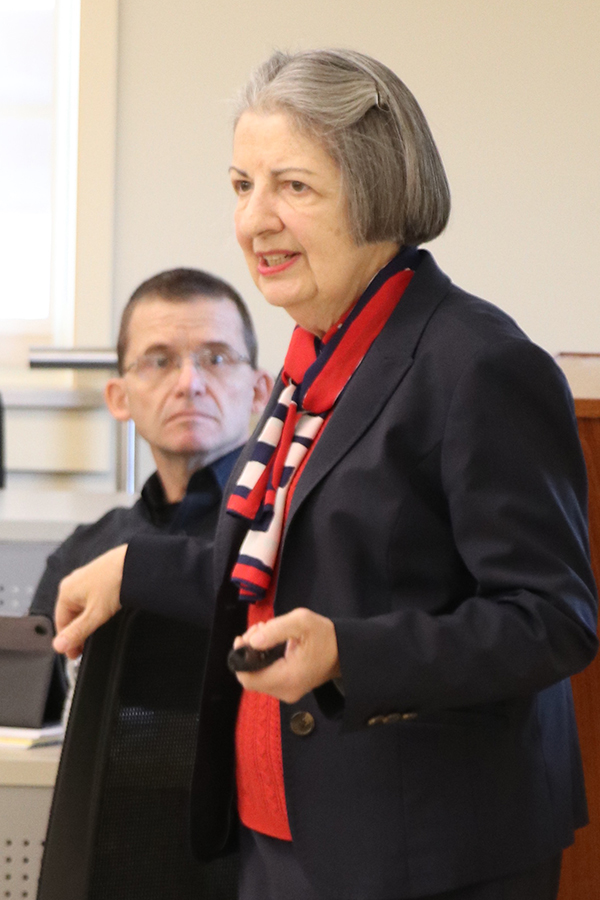By Sarah Waller
Samford University
Samford University’s Center for Faith and Health and Beeson Global Center partnered with the Alabama Baptist State Board of Missions on Sept. 23 to host Medical Missions and the Local Church Conference.
The conference brought together medical professionals, pastors and church leaders in the community to discuss strategies and motivations behind medical missions work.
Attendees heard from three speakers, each of whom possesses a wealth of experience in missions: Danny Wood, pastor of Shades Mountain Baptist Church, Vestavia Hills; Larry Pepper, a doctor and missionary to Tanzania; and Rebekah Naylor, an award-winning surgeon and missionary now practicing in Dallas.
Crossing barriers
“This is truth. Health care professionals are unique,” Naylor said. “It is true that any follower of Jesus in any profession can go anywhere and find people whom he can access and share Jesus Christ. We are commanded to do it but the health care professional can cross more barriers than any other profession.”
Naylor, who worked in Bangalore, India, with the International Mission Board (IMB) from 1974 to 2002, shared how in her experience she found that health care can cross any geographic, economic and cultural barrier that exists.
“But perhaps the most important, we are the only people who in minutes can reach a spiritual conversation,” she said.
“We can get there very quickly because of our relationship with the patient.”
All three speakers spoke on the biblical mandate for missions. In Matthew 9:35–38, the Bible says, “Jesus went through all the towns and villages, teaching in their synagogues, proclaiming the good news of the Kingdom and healing every disease and sickness. When He saw the crowds, He had compassion on them because they were harassed and helpless like sheep without a shepherd. Then He said to His disciples, ‘The harvest is plentiful but the workers are few. Ask the Lord of the harvest, therefore, to send out workers into His harvest field.’”
Wood shared how this verse demonstrates the pillars upon which every missions strategy should be based: evangelism, compassion/justice and discipleship.
In Matthew 9, Jesus was “proclaiming the good news of the Kingdom” (evangelism), He was “healing every disease and sickness” (compassion and justice) and He was sharing with His disciples about the harvest (discipleship), Wood said.
Pepper, who has worked at Kigoma Baptist Hospital in Tanzania with the IMB for 22 years, shared that it is equally important to proclaim the gospel as well as demonstrate it. Health care opens doors to do this, he said.
He explained his strategy: access the unreached, get behind closed doors and have intimate conversations about Jesus, provide compassionate care, disciple internationally and empower others to do the same.
‘A great success’
“It is a process I am constantly thinking about,” Pepper said.
In addition to their talks in the morning, Naylor and Pepper spoke specifically to medical professionals during the afternoon breakout sessions.
“This conference was a great success,” said Michael Hogue, associate dean of Samford’s Center for Faith and Health.
“At Samford, we encourage students to seek out God’s calling on their lives, which often comes through missions. With events like this, we are able to share this message with our community.”






Share with others: